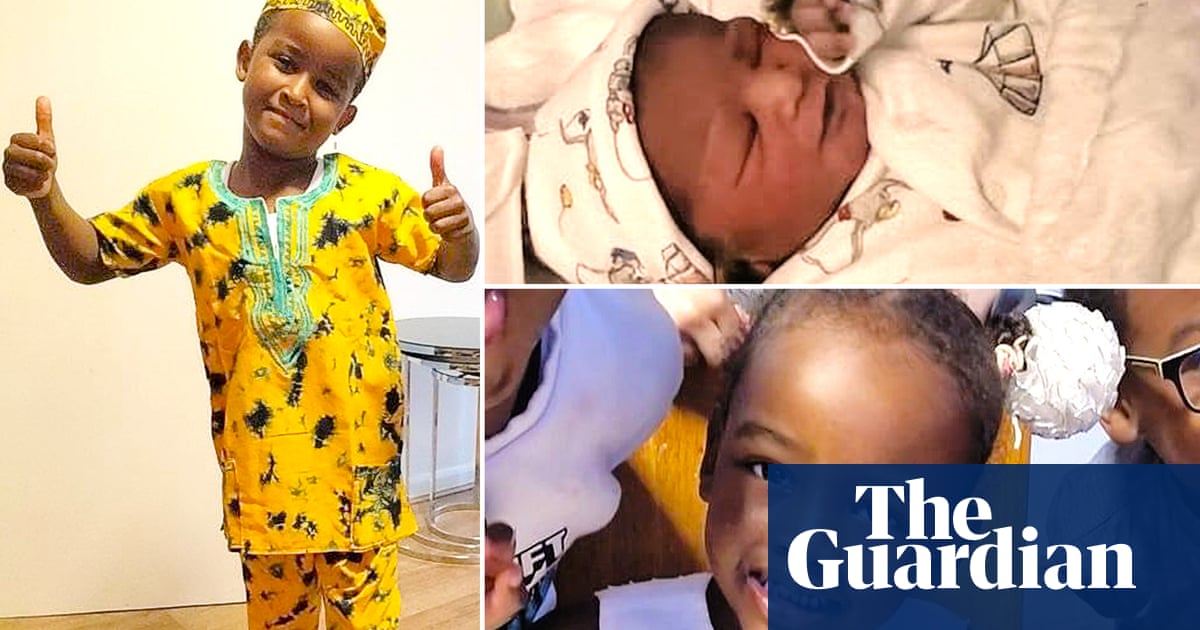
A woman injured in the Fishmongers’ Hall terrorist attack in London has told an inquest she had played dead after the convicted terrorist Usman Khan stabbed her repeatedly.
Isobel Rowbotham was a part-time officer manager for Learning Together, the group that organised the prisoner rehabilitation conference at the hall where the attack took place on 29 November 2019, the inquest jury was told.
Rowbotham knew Khan before the attack and unsuccessfully pleaded with him to stop, she told the jury. She said Khan left her for dead after repeatedly stabbing her.
She said: “I remember his final stabs were in my neck, and it felt sort of like he thought they were the final stabs, as in they were intended to finish me, I guess.”
She added: “I was on the floor and had closed my eyes. I could still hear. I sort of decided to play dead, just in case he did come back again and realised that I wasn’t dead straight away. I tried to slow down my breathing, blood flow as much as possible.”
Rowbotham confirmed she was taken away on a stretcher and then treated in hospital.
Before she was stabbed, Rowbotham witnessed the aftermath of Khan’s knife attack on Jack Merritt, her colleague at Learning Together, who was killed along with volunteer Saskia Jones.
Rowbotham said: “He [Merritt] was shouting that he had been stabbed. He was holding his stomach, and obviously had been injured, there was a lot of blood everywhere. He was wearing a white shirt so the red blood was quite obvious. He was hunched and in a lot of pain.”
Seconds later Khan began his attack on Rowbotham. She told the inquest: “Then I saw Usman coming towards me with knives in his hands. I particularly remember the one in his left hand. He was carrying two knives. They seemed quite big, kitchen. He seemed quite intent.”
Rowbotham described how she pleaded with Khan to stop. She said: “I knew who it was. So I was saying: ‘No, please don’t.’ When it was obvious that he wasn’t going to stop I turned to my left, and sort of just tried to hunch to protect myself.”
Jonathan Hough QC, counsel to the inquest, asked: “What did you feel next?”
Rowbotham replied: “Him stabbing me. It felt like a lot of repeated punches … I can’t count how many times.”
After the attack, Rowbotham attempted to call the emergency services, but couldn’t because her phone was covered in her blood. She said: “I tried to use the touch ID to open my phone. There was too much blood to press on the screen so I didn’t.”
Later the inquest was told that Merritt helped book Khan on to another train to the conference after the train his killer was due to take was cancelled.
Simon Larmour, a research associate for Learning Together, was with Merritt on the morning of the conference when Khan called him to say a 7.39am train from his home town of Stafford had been cancelled.
Larmour had been assigned to meet Khan off the train at Euston in London, before taking him to the conference.
Larmour told the inquest: “He [Usman] was panicking because his train was cancelled … While I was on the phone with Usman, Jack was looking at his phone to see if there were any other trains that Usman could take. We found another train so we went on to that one.”
Asked by Hough why he asked to meet Khan from the train, Larmour said: “I assumed there was a restriction on why he couldn’t travel alone. And that’s as much as I know.”
He said he was given no safety instructions by the probation service for dealing someone like Khan, who was released on licence at the time.
He was also asked whether he knew that Khan was a convicted terrorist. Larmour said he found this out only after doing a Google search of his name, “because I was curious”.
Larmour told the inquest that he had led two rehabilitation courses that Khan attended before he was released from Whitemoor prison on licence in December 2018. At that stage he said he did not know what offences Khan had committed. He added: “We wouldn’t necessarily need to have a conversation about what they specifically did, or the criminal behaviour.”
Larmour told the inquest: “During the course he was quite engaged, and he was quite vocal with his opinions.”
In a follow-up interview in March 2019, Larmour said Khan seemed “quite neurotic”. He told the inquest: “He was very focused on his time in prison, even though most of the interviews were trying to understand his life post-release.”
In phone conversations between March and November 2019, Khan told Larmour that he wanted to find a job and his own place. “He seemed quite positive,” Larmour said. “He would mostly talk about what he was writing. He was writing a play … or a short story.”
But in a call a week before the conference, Larmour said Khan “seemed a bit off”. He added: “He was very much just to the point and seemed like he wanted to get off the phone … it was different.”
He told a colleague at Learning Together that Khan “just seemed a bit weird and depressed”.
He added: “I wasn’t necessarily worried because people that get out of prison have very volatile lives and so this is part of the process. We come to expect this type of behaviour or the ups and downs, quite regularly.”
The inquest, heard before judge Mark Lucraft, continues.












